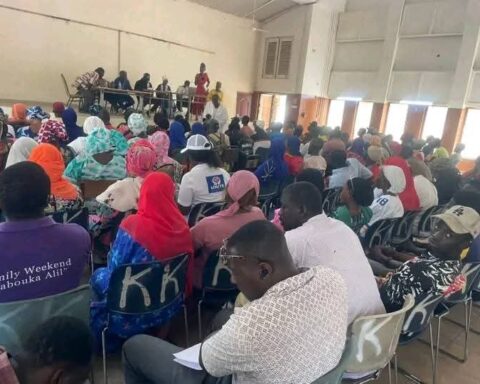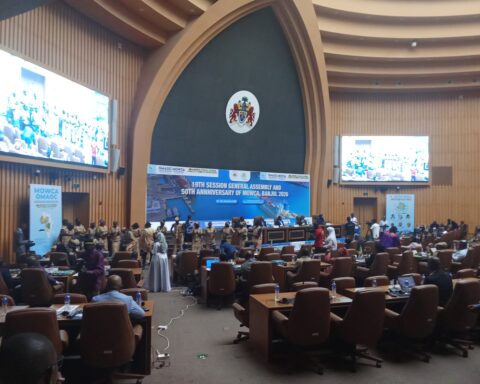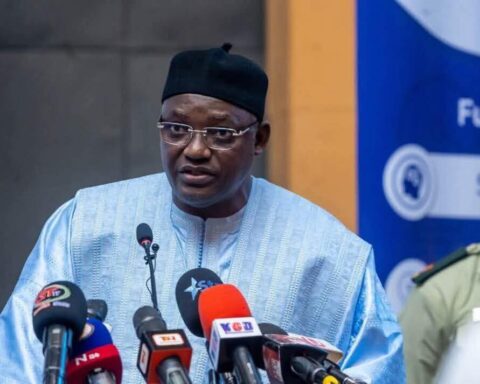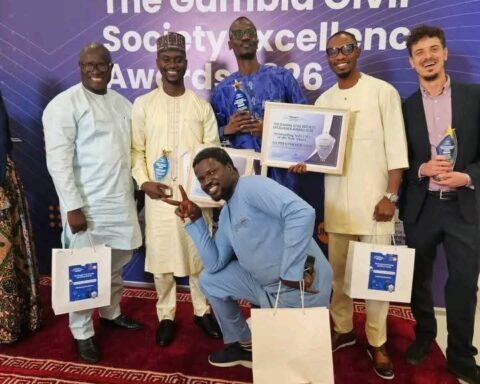In the scorching heat of August 2007, I arrived in America, feeling as though I had stepped into a completely different world. Among the many striking differences, the cleanliness stood out the most. Coming from Gambia, the contrast was stark. My first morning in America, I was astonished by the absence of litter—no plastic bags, papers, bottles, or other debris cluttering the streets. This was a sharp contrast to my memories of what I left behind in Gambia, During a conversation with my friend Yus, he asked me what had struck me the most about my new surroundings. Without hesitation, I mentioned the immaculate cleanliness. My mind immediately flashed back to the mid-90s in Brikama when the area council had attempted to address sanitation by building sewage lines around the market. However, these efforts were often undermined by market vendors who routinely swept their trash into the gutters, creating a constant cycle of filth that was both unsightly and unhygienic. The sewage lines often overflowed with trash mixed with sand, particularly during the rainy season. Returning to Gambia almost 14 years later, I was disheartened to find that old habits had not changed. The area around Nyambai Forest, for instance, was still being used as a landfill, with piles of trash lining the highway and livestock foraging through the refuse. Despite existing environmental laws and the presence of the Ministry of Public Health and local councils, effective waste management practices were glaringly absent. There is a dire need for attitudinal change and substantial investment in trash collection infrastructure, similar to the efforts seen in the Kanifing Municipal Council (KMC). My observations were primarily confined to the Western Coast Region (WCR), Kanifing Municipality (KM), and Banjul. Of these, WCR was by far the most affected. The route from Brusubi Junction to Sanyang to Brikama, my usual route, was marred by roadside dumps, reminiscent of the large trash heaps near Nyambai Forest. The situation at Tanji market was particularly concerning, with foul-smelling trash heaps sitting adjacent to food stalls. Similarly, an old quarry after Sanyang had become an unofficial landfill, with refuse scattered around rather than being properly disposed of. As a first impression of Gambia’s beaches, I will not take my family anywhere near the Brufut and Tujereng beaches.They were littered with diapers, empty ebbeh bowls, plastic bottles, and other debris. It is unacceptable that after a beach outing, people leave their trash behind. There is an urgent need for the Tourism Development Area (TDA) to invest in trash cans and proper waste disposal facilities to maintain the beauty and hygiene of our beaches.
Credit must be given to the KMC for their efforts. Their visible presence of trash pickup trucks and effective collection routes demonstrate progress in waste management. However, much more needs to be done to change public attitudes and behaviors towards littering. The situation in Banjul, particularly around the port, was alarming. The gutters filled with filth pose a severe public health hazard. It is imperative that both local and central governments take robust action to address these issues. Educating the populace on the importance of proper waste disposal and enforcing existing environmental laws are crucial steps in this process. Every household and business should have indoor trash bins and outdoor trash cans for routine pickups. This standard should be mandatory for all establishments, including restaurants, corner shops, barbershops, and food stalls. Local governments cannot manage this task alone; the central government must encourage and support private businesses to invest and participate in these efforts, offering incentives where necessary. Poor sanitation has a significant impact beyond appearance. Lost tourism revenue due to
unclean beaches and overflowing gutters is a serious concern. Furthermore, the healthcare costs associated with diseases spread by improper waste disposal are a heavy burden on the Gambian economy. Investing in a robust waste management system is not just about keeping the country clean; it’s an investment in public health and economic prosperity. While efficient waste collection is crucial, a truly sustainable solution lies in waste reduction and resource recovery. Encouraging the use of reusable shopping bags and promoting recycling programs can significantly reduce the amount of waste ending up in landfills. Additionally, exploring waste-to-energy technologies could not only address disposal challenges but also generate clean electricity. The return of national cleanup days, as practiced during Jammeh’s regime, could be a part of the solution. Moreover, local governments should look to KMC as a model, prioritizing trash pickup and maintaining clean neighborhoods. Encouraging private companies to invest in waste management could also be beneficial, with dedicated zones assigned to ensure comprehensive coverage. In conclusion, the Ministry of Public Health and the Ministry of Environment must enforce regulations and hold individuals accountable for improper waste disposal. It is not only about maintaining appearance but also about safeguarding public health. The transformation required is significant but achievable with concerted efforts from both the government and the people. The Gambia can become a cleaner, healthier haven. A collective commitment to change is the key. Let us prioritize proper sanitation and work together to preserve the beauty of our country for generations to come. By embracing innovation, fostering community action, and holding ourselves accountable, we can turn the tide and create a Gambia that is not only beautiful but also sustainable
Sowe Pullo
Brikama








